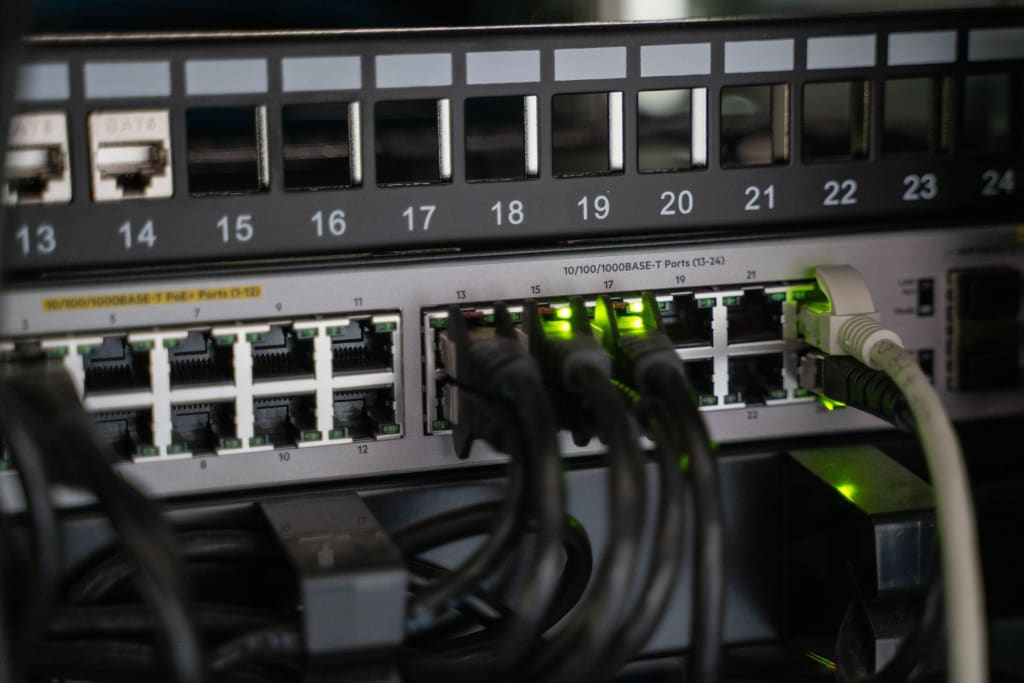Uncovering the Mystery Behind How Wi-Fi Routers Really Work
Wi-Fi Routers

Wi-Fi routers are a ubiquitous presence in homes and offices around the world. They allow us to connect our devices to the internet, stream music and videos, and play online games without having to be physically connected to a network. But how exactly do Wi-Fi routers work? This article will explain the underlying technology behind Wi-Fi routers, and what happens behind the scenes to enable us to connect to the internet wirelessly.
Wi-Fi routers use radio waves to communicate with devices. These radio waves operate at a frequency of 2.4 or 5 GHz, which is the same frequency range used by other devices such as microwave ovens and cordless phones. The router uses an antenna to send and receive these radio waves, which is why it is sometimes referred to as a transceiver. The router is also responsible for encoding and decoding the data that is sent over the airwaves.
(Click for the best Wi-Fi routers)
When you connect a device to your Wi-Fi network, it sends a request to the router asking for an IP address. The router assigns the device an IP address from a pool of available addresses, which allows the device to communicate with the internet. The router also serves as the gateway between your network and the internet, which means that all of the data that is sent and received by your devices must pass through the router.
(Click for the best Wi-Fi routers)
The router uses a technology called Dynamic Host Configuration Protocol (DHCP) to assign IP addresses to devices. DHCP automatically assigns a unique IP address to each device that connects to the network, and the IP address remains assigned to the device until it disconnects from the network. This makes it possible for multiple devices to connect to the network at the same time, without having to manually assign IP addresses to each device.
IP Addresses and DHCP
When a device connects to a Wi-Fi network, it sends a request to the router asking for an IP address. An IP address is a unique identifier that allows the device to communicate with other devices on the network and with the internet. The router uses a technology called Dynamic Host Configuration Protocol (DHCP) to assign IP addresses to devices, automatically allocating a unique address to each device that connects to the network.
(Click for the best Wi-Fi routers)
Once the device has been assigned an IP address, it can communicate with other devices on the network and with the internet. When you visit a website or send an email, for example, the data is sent from your device to the router, which then forwards the data to its destination on the internet. The reverse happens when data is received from the internet, it is sent from the router to your device.
(Click for the best Wi-Fi routers)
The router also provides a secure connection between your devices and the internet. This is done using a technology called Wireless Encryption Protocol (WEP) or Wi-Fi Protected Access (WPA), which encrypts the data that is sent over the airwaves. This makes it difficult for someone to intercept the data and use it for malicious purposes.
(Click for the best Wi-Fi routers)
In addition to providing a secure connection, Wi-Fi routers also allow you to control access to your network. For example, you can set up a password for your Wi-Fi network, which prevents unauthorized devices from connecting to your network. You can also set up parental controls to restrict access to certain websites, or you can limit the amount of bandwidth that each device can use.
In conclusion, Wi-Fi routers are an essential component of our connected world. They allow us to connect to the internet wirelessly, and provide a secure and convenient way to share internet access with multiple devices. By understanding how Wi-Fi routers work, we can better appreciate the technology that makes our connected lives possible.






Comments
There are no comments for this story
Be the first to respond and start the conversation.